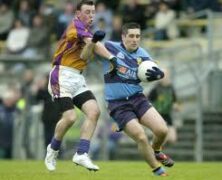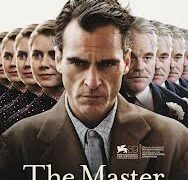Firstly to soccer. The Premier League is coming towards its final 10 matches so things are getting exciting. Man Utd are running away with the title. Chelsea, Tottenham and Arsenal are going for Champions’ League places and at the bottom; teams like QPR, Reading, Wigan, Aston Villa and Southampton are doing their best not to get relegated. Luis Suarez, Robin van Persie and Michu are going for ‘top scorer’ and Gareth Bale will probably get Player of the Year. I think Man Utd will win the League, Man City will come second – Spurs and Arsenal to get in the Champions League. I think Reading, Wigan and Aston Villa will get relegated. The Champions’ League is also getting exciting. Barcelona, Real Madrid, Malaga, PSG, Bayern Munich, Borrusia Dortmund, Galatasaray and Juventus have all made it to the quarter finals. I think Real Madrid will win because they have a strong squad and they have players like Ronaldo, Ozil, Benzema and Ramos so I think they’ll win it but it will be close. Now to GAA. The Allianz National Leagues have started. After 2 matches, Cork are top of the hurling with a win over Tipperary and a draw with Waterford. After 4 matches, Cork are mid-table in football with losses to Dublin and Kildare and wins over Down and Tyrone. Cork have a new jersey sponsored by Chill Insurance. The Cork U-21 footballers won their Munster quarter final against Kerry 0-14 to 2-07. I was at the match and it was very exciting because Cork nearly threw it away at the end. They will now play Tipp in the semi-final. At this time of year, training is a nightmare for GAA players because you mostly do running but it’s all worth it...
Favourite Reads: “What are You Looking at? 150 years of modern art in the blink of an eye” by Will...
posted by Cloud
Gompertz has written a miracle of a book if only for its sheer enjoyment. He takes modern art and opens it like a birthday present and you just love getting it. I love everything about it: its bright cover; its neat font; the colour plates (not so much the b&w ones!); the subject matter; the fluid expression; the personable manner with which he writes. The story begins with a coterie of disgruntled, bored artists in Paris seeking to challenge the artistic orthodoxy of the day as exemplified by the Acadamie des Beaux Arts. This was the stuffy edifice that decided what was and wasn’t art. Monet and Delacroix painted en plein air (outside) which is considered normal enough now but was something of an aberration then. Delacroix used unmixed colours: think of his Liberty Leading the People which so upset the French Monarchy of the day for being a little too republican in tone. Then you have Gustave Courbet’s The Origin of the World. Even now this raises eyebrows. His model was alleged to have been an Irishwoman named Joanna Hiffernan. The painting shows…erm, her nether regions in a way that, shall we say, leaves little to the imagination. It was supposedly commissioned by Khalil-Bey, a Turkish-Egyptian diplomat, who kept it behind a curtain. Suffice to say, Courbet causes waves. Manet combined Delacroix’s skill with Courbet’s realism and made The Absinthe Drinker, a portrait of a bum in Paris. The subject matter, to say nothing of the style, upset the Academie. But Manet had his fans. Baudelaire was one. He argued that proper art should be about modern life as it is. What could be more natural nowadays? Baudelaire advocated the lifestyle of a flaneur, a traveller, a man-about-town, living amongst the ordinary folk,...
Favourite Reads: “A Little Aloud” edited by Angela MacMillan...
posted by Cloud
This gem of a book is part of the The Reader Organisation (TRO). They run a Get into Reading programme to encourage those who may not otherwise read to do so by giving them the option of listening to others read for them. These recipients may include the mentally or chronically ill, those living in deprived areas, prisoners, recovering addicts and a whole range of others. The TRO argues that literature speaks to us all. It started in Liverpool but is now running in Australia and elsewhere. The Foreword is written by Blake Morrison, an accomplished writer and patron of the TRO. In it he recounts how he asked the writer Doris Lessing, “What does it all mean?” Lessing answered with a question of her own: “What are human beings for?” He pursues this question and asserts that making meaning is a human trait, a need: “We are stories.” I read the poem “For a Five-Year-Old” by Fleur Adcock with a class. It’s about a snail; the child sees the snail and the parent advises to remove it so that it won’t be crushed. The child agrees and the agreement is as natural as anything else the child might do upon the suggestion of the parent, like having something to eat or a bath. But the speaker realises something: “I see, then, that a kind of faith prevails:/your gentleness is moulded still by words/ from me”. However that same voice admits to acts of terrible cruelty: “[I] have trapped mice and shot wild birds/[…] drowned your kittens”. The child simply wants to look at the snail. His response is curiousity. The parent teaches the child to dispose of the creature all the while living hypocritically: “But that is how things are: I am your...
Favourite Reads: “The Remains of the Day” by Kazuo Ishiguro...
posted by Cloud
“But all in all, I can see no genuine reason why I should not undertake this trip.” This novel is extraordinary for its narrative voice. It is Mr Stevens and it is 1956; he is due a few days off and is planning a very English-style holiday involving guest houses and suitable costumes as well as ensuring he’s presented appropriately given that he represents Darlington Hall. The trip is a major affair and everthing has to be carefully considered. Even the offer by his employer Mr Faraday to allow the trip and to cover the cost of fuel is analysed in depth. We quickly learn that the trip is not so simple as it initially seemed: there’s a Mrs Kenton who now lives elsewhere due to marriage but is an erstwhile colleague of Stevens’. The latter suggests rehiring her as there is a paucity of good help at Darlington. Mr Faraday jokes with Stevens about his motives and Stevens is mortified. Stevens isn’t au fait with “banter”: indeed he seems very much ill-at-ease with it. Most of the novel is told in retrospect. We see a forgotten (by some) world where duty is everything. This is very evident in the personage of Stevens’ father. Both men are English to the core. Living up to this standard is perhaps what ensures that he remains – for the duration of the story – uptight, quietly desperate and somehow vaguely attenuated. Mr Stevens and his colleague Mr Graham disagree on the subject of dignity. The latter believes it to be an innate quality like a woman’s beauty, while Stevens believes it’s something that can be pursued and perfected over time. He opines that his father had this rare and essential dignity in the sense he wasn’t just...
Monologue: Deep Water...
posted by Cloud
In the deepest reaches of the most terrifyingly dark and frozen seas there are fish. They exist in a murk, hellish in human terms and offensive to any mind covetous of warmth and love. Here, life – if you can call it that – is brutal and greedy, short and snappy and devoid of all compassion. And yet some power, some higher authority that many may choose to identify as God, has decreed that life will thrive; not only will it thrive, but it will do so in the most fantastical way, in bright, absurd colour and unique shapes, fish that are unlike anything familiar to us and to most fishermen. The weight of the black ocean above them is enough to crush a blue whale which, impossibly, wanders through such an oily-cold and remote garden of death. A man, were he to sink from the surface toward this demesne at the speed at which he would walk on a sidewalk in a busy city street, would travel like that for hours before he’d reach the deepest, furthest mountain valley of the dark, though, of course, he would implode long before journey’s end. His body would be crushed. Even the best, most intrepid divers have reached a depth of only seventy metres or so. And besides, if sheer physics doesn’t kill you, chemistry might: oxygen turns poisonous under high pressure. Funny how that which ensures our life can take it when circumstances change. R.H....
A Gem
posted by Cloud
A gem: It’s what he called you, And in a thrice I saw visits to bookshops On rainy Saturdays; Our covetous, inquiring minds Devouring the day. But you pushed your advantage Thinking I’d come running. I witnessed a trampling: It wasn’t funny, though you laughed. That, I witnessed. Now I read alone....
The Grass is on Fire by Aaron McCarthy...
posted by Cloud
Tineland is a country covered in grass. There are no roads or footpaths, the whole country is one giant field. The shops, schools and everything else are all located on this fiery mass and people get around by foot, land rovers, tractors and even on horseback. I could of course tell you how this country came to be and point out that it’s in Europe but this is no history lesson, nor is it a geography class; this is a story, a true story involving a guy named Rhys. ‘Must you really cancel the holidays?’ the beautiful blonde Glenda Eshen asked, sitting upright in bed. ‘Yes,’ her husband, who had long dark locks, replied. He pulled back the quilt and got out of bed. ‘But Rhys please,’ Glenda urged ‘can’t you do something? You are, after all, the manager; can’t you get someone else to do the work for you?’ Rhys looked at her and shook his head. ‘No,’ he lied. ‘There really is nothing I can do.’ He looked into his wife’s pale blue eyes, picked up on the suspicion and grinned – divorce was inevitable. ‘Bye,’ he said after changing into his pinstripe suit. ‘Goodbye,’ Glenda gave a mock smile and Rhys left the room. On his way to work in his new Range Rover, Rhys stopped by the local newsagents. Drumming his bare fingers along the newspaper stand, Rhys picked out “The Tineland Times” and brought it to the cash desk where a tall, fit young woman with sallow skin and long chestnut-coloured hair was giving a dazzling, professional smile. ‘Hello,’ she beamed at him. She took a look at the newspaper and nodded. ‘That will be one Aurum twenty five.’ ‘A pack of fags too please,’ Rhys said and...
From Simple Minds to Simple Minds by Daniel Dilworth...
posted by Cloud
Simple Minds were a Scottish band who had a big hit in 1989 called Belfast Child, which was about The Troubles and was set to the tune of She Moved Through the Fair. Sinead O’Connor performed this song on the soundtrack to Michael Collins, which starred Liam Neeson. Liam Neeson appeared in The Phantom Menace, the first film in the sequence of Star Wars films. Star Wars was the brainchild of George Lucas, who released the first film, A New Hope, in 1977. This film, along with Indiana Jones, made Harrison Ford a household name. Ford appeared in a minor role in the film Apocalypse Now, which starred Martin Sheen. Martin’s son, Emilio Estevez, appeared in the film The Breakfast Club, which is famous for its opening song Don’t You (Forget About Me), which was performed by Jim Kerr and his band, Simple...
The Master by SwagDaddy...
posted by Cloud
The Master follows Freddie Quell ( Joaquin Phoenix), an alcoholic World War II veteran struggling to adjust to late 1940s America. After losing his job as a department store photographer and then his job on a cabbage farm, he stumbles drunkenly on to the yacht of Lancaster Dodd (Philip Seymour Hoffman) , leader of “The Cause.” Inspired by L. Ron Hubbard, founder of Scientology, Dodd is portrayed as a charismatic but controlling charlatan who takes an interest in the psychologically scarred Quell. Freddie joins “The Cause” and soon becomes one of its most avid followers, defending Dodd from cynics with increasingly vicious attacks as he tries to spread his message, travelling around America to the houses of rich supporters demonstrating his methods that he claims can cure any disease or ailment. Paul Thomas Anderson’s favoured theme of the father-son dynamic is very strong here, Quell and Dodd’s mutualism mirroring that of Daniel Plainview and H.W’s in “There Will Be Blood” , each heavily depending on the other. Lancaster Dodd announces that Freddie will be his “guinea pig and protegé” , thus cementing the relationship that propels the plot. The Master is at its best during the intimate moments between Dodd and Quell as they explore their characters, thoroughly dissecting them to expose Lancaster Dodd as a needy, seething con-man and Freddie Quell as a sensitive, vulnerable sex-crazed drifter who craves acceptance. Joaquin Phoenix gives the best performance of his career , embracing the physicality of the role with his awkward gait and twisted facial expressions, outward projections of his broken psyche. Although he is a hard character to like, Freddie Quell grows on you like mould on a forgotten sandwich in a performance you won’t soon forget. Mihai Malaimare Jr’s cinematography is fantastic, treating...









